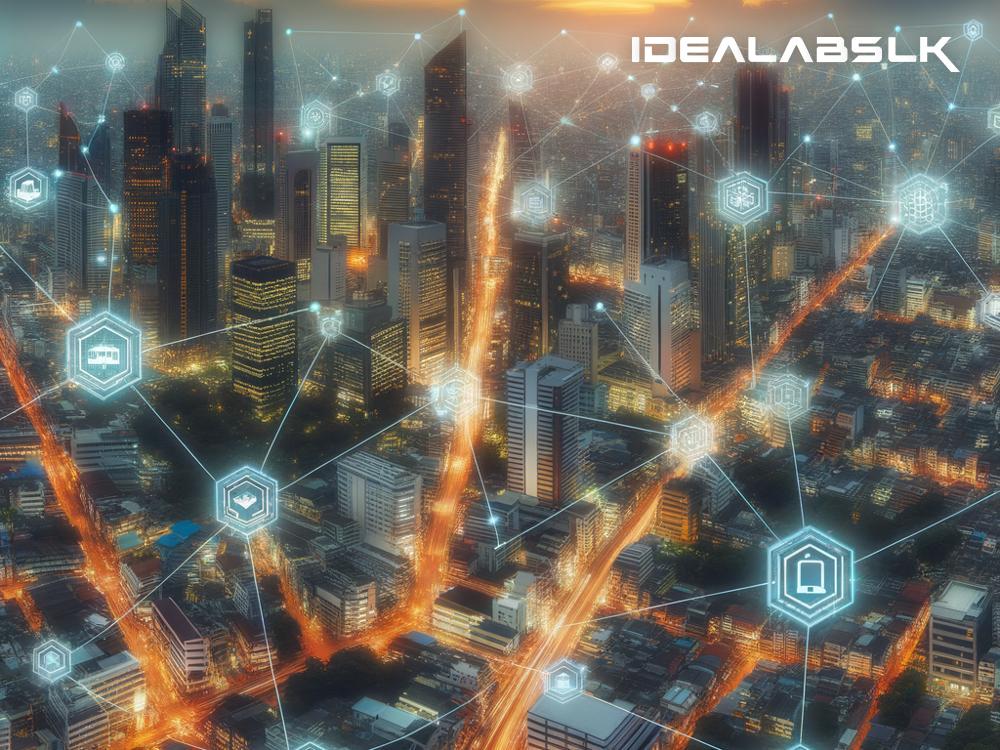Title: Unlocking the Future of Property Deals with Blockchain: A Simpler, Faster Way to Finance Real Estate
In a world where technology is constantly advancing, it's no surprise that the real estate industry is also looking for ways to innovate and improve. One of the most promising technologies making waves in this sector is blockchain. Now, you might be wondering, "What does blockchain have to do with buying or selling homes?" Quite a lot, as it turns out! Let's dive into how blockchain is transforming the world of real estate financing, making it more secure, efficient, and accessible for everyone.
The Basics of Blockchain in Real Estate
First, let's demystify blockchain. Simply put, it's a type of database that stores information in blocks that are chained together. Once a block is filled with data, it's linked to the previous block, creating a chain of data known as the "blockchain." This technology is acclaimed for its security and transparency, which are critical in financial transactions, including those in real estate.
Now, how does this apply to buying a house or an office space? Traditionally, property financing involves a lot of paperwork, intermediaries like banks and lawyers, and, unfortunately, a lot of waiting time. Blockchain can streamline this process significantly. Here's how:
Instant Property Verification
Imagine being able to verify the ownership history and the legal status of a property instantly. Blockchain makes this possible by storing all the necessary data on a secure platform. This drastically reduces the time and effort needed for due diligence, making the process of buying or selling property faster and less prone to errors or fraud.
Cutting Out the Middlemen
One of the blockchain's revolutionary aspects is its ability to facilitate peer-to-peer transactions. In the context of real estate, this means buyers and sellers can interact directly, reducing the need for intermediaries such as banks and lawyers. This not only speeds up transactions but also lowers the costs associated with property financing.
Tokenization: Making Real Estate Investment More Accessible
Tokenization is another game-changer brought by blockchain. It involves converting asset value into digital tokens that can be sold on the blockchain. This process enables investors to buy shares in a property just like they would buy stocks in a company. For the real estate market, this means increased liquidity and a broader pool of investors. Whether you have a small amount to invest or are looking to buy a substantial share, tokenization makes it possible and practical.
Secure Transactions
Security is paramount in real estate deals, and blockchain excels in this arena. Each transaction on the blockchain is encrypted and linked to the previous transaction, creating a tamper-proof record. This significantly reduces the risk of fraud, ensuring that both buyers and sellers can have peace of mind.
A Green Light for Smart Contracts
Blockchain enables the use of smart contracts in real estate transactions. These are self-executing contracts with the terms of the agreement directly written into code. They automatically enforce and execute the terms of a contract when certain conditions are met, without human intervention. For example, a smart contract could automatically transfer property ownership once payment is confirmed, making the process seamless and reducing the potential for disputes.
The Impact on the Future of Real Estate Financing
The implications of blockchain for real estate are profound. By simplifying processes, reducing costs, and enhancing security, blockchain paves the way for a more efficient and inclusive property market. For buyers, sellers, and investors, this means faster transactions, lower barriers to entry, and more investment opportunities. For the industry as a whole, it signifies a move towards more transparent, fair, and accessible real estate dealings.
Embracing Change
As with any new technology, the integration of blockchain into real estate comes with its challenges, including regulatory hurdles and the need for industry-wide standardization. However, the benefits are too significant to ignore. As more stakeholders recognize the potential of blockchain, we are likely to see a shift towards wider adoption.
In the not-too-distant future, buying a house or investing in property could be as simple and straightforward as making an online payment. Blockchain is not just about enabling secure and fast property financing; it's about reshaping the very foundation of how real estate transactions are conducted. As we stand on the brink of this exciting new era, one thing is clear: the future of real estate looks bright, and it's powered by blockchain.

